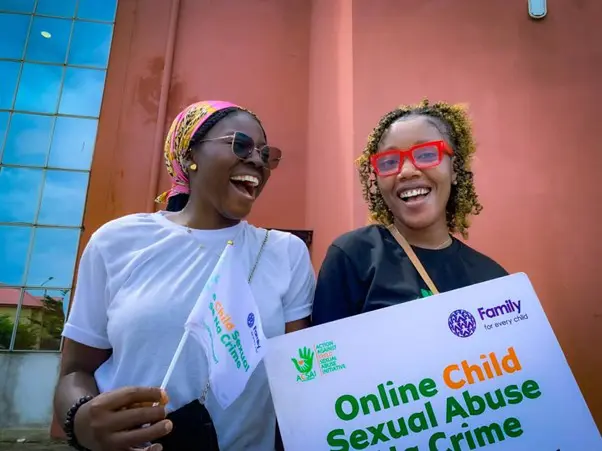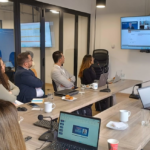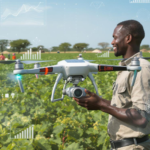By Destiny Uko
In Nigeria and across Africa, victims of abuse often shy away from disclosing concerns and seeking help for fear of stigma, lack of trust, limited access to professional services or simply the feeling of shame. However, advances in digital technology have created encrypted ways for people to share their experiences, receive counselling and seek legal action. These platforms, apps and hotlines are increasingly accessible via smartphones, and many are designed to protect the privacy of users.
This is Nigeria’s first sexual assault health centre that offers confidential counselling, legal support, and medical services for survivors of sexual and gender-based violence. Victims can seek advice and counselling without physically visiting the centre through their 24/7 reachable hotline.
Women at Risk International Foundation (WARIF)
WARIF is a Nigerian non-profit, clamping down on rape, sexual violence, and trafficking. Its mobile app and online chat service match survivors with trained counsellors and psychological experts round the clock. The app also includes safety tips and an SOS feature for emergencies. WARIF’s services can be accessed nationwide and allow for anonymity.
Stand to End Rape Initiative (STER) Online Chat
STER runs an online chat platform that allows survivors of rape to speak with trained personnel confidentially. It offers emotional support, practical guidance, recovery tips and links to legal aid. STER is very solid in its resolve to help victims, and as such, provides hotlines that are accessible 24/7 daily, conducts advocacy and provides free self-help resources for survivors who are unwilling to reach out.
This youth-centred app aids both male and female victims of abuse, especially sexual harassment in schools and workplaces, in reporting incidents to the relevant authorities. Survivors can submit complaints anonymously, which are then forwarded to the relevant authorities or advocacy partners. The app is designed with a focus on youth, particularly female students in Nigeria, who are often targets of abuse.
This woman-focused initiative focuses more on the mental wellbeing of survivors. They provide 24-hour confidential help via phone and WhatsApp. Survivors typically get connected to trained therapists and mental health facilitators without revealing their identities.
Lagos State Domestic and Sexual Violence Agency (DSVA) Hotline
DSVA runs hotlines and WhatsApp support services for abuse survivors in Lagos State. These platforms offer legal advice, police referrals, and access to shelters. Survivors can use code words or discreet messages to request help, which is especially important in cases where abusers monitor phone activity.
RAINN’s Online Chat
The RAINN National Sexual Assault Online Hotline offers anonymous chat services for survivors of sexual violence. This platform provides one-on-one support with trained specialists who guide survivors toward legal and emotional resources without requiring them to disclose their identity.
SafeSpace Chatbot for Mentally Aware Nigeria Initiative (MANI)
MANI operates the “SafeSpace chatbot”, a digital tool that allows people to talk about mental health and abuse experiences in a private, judgement-free environment. It provides crisis intervention and referrals, amongst other helpful resources, through Facebook Messenger and WhatsApp, making it widely accessible.
Virtual Legal Aid
Several Nigerian legal aid groups now offer online consultation for survivors who cannot visit in person. Platforms like Legal Aid Council of Nigeria and FIDA Nigeria allow survivors to seek legal assistance through email, secure chats, and telephone calls. This is essential for rural dwellers without adequate access to law offices or for whom legal fees are a challenge.
Online Therapy and Counselling Platforms
Organisations like Therapymantra Africa and Mind Matters Nigeria provide confidential therapy sessions over Zoom or WhatsApp, allowing survivors to access mental health support without risking in-person exposure. Their services span across Africa, with therapists trained in trauma recovery and mental health on board.
A very immediate shoulder to lean on is the National Domestic Violence Hotline. It remains a trusted ear in times of sexual crisis and emotional abuse. This 24/7 chat service features a quick exit button that instantly redirects to a neutral site, ideal for guarding against monitoring abusers.
Finally, awareness is vital. Many victims of violent acts do not know that these tools exist or how to employ them. Community-based outreaches, school programmes, and media campaigns can embolden more victims to take steps toward safety and to speak out.
Advancements in digital technology in Nigeria and Africa have provided encrypted ways for abuse victims to seek help and share experiences while maintaining their privacy. These innovative platforms include apps, hotlines, and online services that offer support for sexual assault and violence survivors. Key initiatives include the Mirabel Centre for medical and legal support, and the WARIF app offering counseling and an SOS feature for emergencies. The Stand to End Rape Initiative conducts online chats for confidential support, while Gender Mobile focuses on youth-targeted abuse in schools. She Writes Woman and DSVA emphasize mental health and legal support respectively, offering 24/7 confidential assistance.
Additionally, SafeSpace Chatbot and Virtual Legal Aid provide mental health and legal advice anonymously via digital tools. Online therapy platforms, like TherapyMantra Africa and Mind Matters Nigeria, connect survivors with trained therapists for counseling services, thus avoiding physical exposure risks. The National Domestic Violence Hotline offers round-the-clock support through a chat service with safety measures against monitoring. Awareness is critical since many victims are unaware of these available tools, highlighting the importance of community outreaches and media campaigns to empower more victims to seek safety and speak out.






